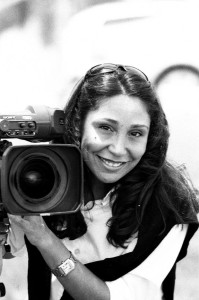 Saudi film offers an uplifting look at adolescent life.
Saudi film offers an uplifting look at adolescent life.
It’s been awhile since I had as little of an idea of what to expect going into a movie as when going to Wadjda. Hearing that the movie was filmed in Saudi Arabia by its first female director, I couldn’t help but worry that the film would be a depressing story of oppression that would offend my sensitive Western values (that’s a joke). What I got instead was an uplifting story of a girl struggling to find her place in a complicated society.
Wadjda follows a young Saudi girl of the same name, who joins her school’s Qur’an competition in order to win money for a bicycle. Throughout the movie she has to contend with her school’s strict principal, marital strife between her parents, and what is expected of her, on top of studying for the competition. Waad Mohammed shines as Wadjda; she’s smart, sassy, energetic, and carries the film easily. Ahd is stern and intimidating as the school principal, Ms. Hussa. The way that two play off each other is one of the better aspects of the film; the frustration the two feel at each other is almost palpable. Wadjda struggles throughout the movie, as she is interested in rock ‘n’ roll music, wearing sneakers, riding bikes, all of which are frowned upon or forbidden by her school. She is told at many points, usually by Ms. Hussa, to stop standing out, to conform and move on, but she doesn’t; Wadjda must have her bike. The bike represents the culmination of her rivalry with Abdullah, a neighbourhood boy (played by Abdullrahman Al Gohani); it represents her will to win. The relationship between Wadjda and Abdullah is fun to watch, as the two are constantly teasing and playing off each other.
Wadjda is a really good movie. The acting is quite good, especially by Mohammed, who sets a cheerful tone for a film that could very easily have been depressing. By virtue of its setting, the film engages with Saudi culture—one that those in the West may find distasteful or opaque—but avoids moralizing one way or another in favour of plot. The end result is an even-keeled look at one girl trying to find carve out her identity amidst rigid ideas of what women should be.





